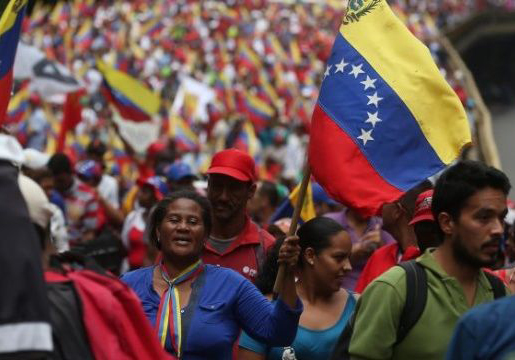On 26 April 2022, the Venezuelan National Assembly elected in 2020 appointed 20 justices to the Supreme Court (Tribunal Supremo de Justicia, TSJ). Most of these appointments were politically motivated. As a result, the process violated international human rights law and standards on judicial independence.
“Instead of restoring the independence of the judiciary, these appointments go in the wrong direction”, said Carlos Lusverti, ICJ South America Legal Adviser.
The election was based on and followed the Venezuelan National Assembly’s adoption of a reform of the Law on the Supreme Court in January 2022. The reform increased the power of the National Assembly — where the Government’s party holds an overall majority — in the appointment process of justices of the Supreme Court and of other key judicial officers. The law also allowed the current justices of the Supreme Court to run for a new 12-year term. Running for a second 12-year term, however, let alone being appointed, violates the Venezuelan Constitution since, according to its article 264, the members of the Supreme Court are appointed for a non-renewable term of 12 years.
Consequently, the law’s enforcement has further undermined the independence of an already highly politicized judiciary by allowing the reappointment of certain judges who were already serving their 12-year term as justices of the Supreme Court. Indeed, the majority of the justices elected (60%) have all already served as members of the Supreme Court. As a result, those justices, who are known for representing the interests of the Venezuelan Government, will hold on to their position for longer than 12 years in violation of the Venezuelan Constitution.
Most of the justices elected have been highly criticized for their role in wrecking the rule of law in the country. Indeed, as the ICJ has previously observed, “The Supreme Court has been co-opted by the ruling party, becoming an appendage of the executive branch, and has ceased to exercise its constitutional function as the guarantor of the rule of law, human rights, and fundamental freedoms”-
Even more concerning, according to the 2nd report of the Independent International Fact-Finding Mission on the Bolivarian Republic of Venezuela, some of the justices of the Supreme Court may have been involved in international crimes or granting impunity for such crimes like extrajudicial executions, enforced disappearances, arbitrary detentions and torture and other cruel, inhuman or degrading treatment or punishment, in particular, since 2014.
Neither the law nor the new membership of Supreme Court guarantees the independence and impartiality of the judiciary. The law and the appointments are not in accordance with international human rights law and standards on the independence of the judiciary, such as the International Covenant on Civil and Political Rights, the Inter-American Convention on Human rights and the United Nations Basic Principles on the Independence of the Judiciary. They also contradict recent international commitments made by Venezuela and recommendations made by the Inter-American Commission of Human Rights’ and reports by the United Nations High Commissioner for Human Rights about administration of justice.
“The ICJ urges the Venezuelan Government to comply with the international recommendations made by several international bodies on the need to strengthen the transparency and accountability in the justice system”, said Lusverti.
Last year, the ICJ called on Venezuelan authorities to “[c]onduct the process of appointing Supreme Court justices in strict compliance with the constitutional principles that guarantee the independence of the judiciary and the separation of powers and in accordance with the procedure established in the Constitution.”
Background
The last time that the membership of Venezuela’s Supreme Court was partially renewed was in 2015 in a highly criticized process posing serious questions in respect of the independence of the judiciary.
Most of the justices appointed in 2015 were members of the Government’s party, and/or former government officials. Thus, gradually but steadily, the Government’s party has co-opted the Supreme Court and turned it into an appendage of the executive branch.
Recommendations on structural reforms of the justice system have also been made by the OHCHR, the Human Rights Committee, the International Fact-Finding Mission, and several States during recent third Venezuela’s Universal Periodic Review.
In 2020, the Office of the High Commissioner for Human Rights (OHCHR) reported that the Venezuelan Government would undertake reforms to the justice system. More recently, in November 2021, Venezuela’s Government subscribed a Memorandum of Understanding with the Office of the Prosecutor of the International Criminal Court. In the Memorandum, the Government committed to adopt necessary measures to ensure an effective administration of justice under international standards.
Along the same lines, back in 2011, the Inter-American Court on Human Rights ordered Venezuela to “adapt the domestic legislation, decisions and regulations issued as part of the judicial restructuring process in Venezuela to the relevant international standards and to the American Convention.”
More information
2021 ICJ Report, Judges on the tightrope: Independence and Impartiality of the Judiciary in Venezuela, available here.
Blog: A New Law and New Justices, but the Same Old Political Control over Venezuela’s Supreme Court, 15 March 2022, available here.




